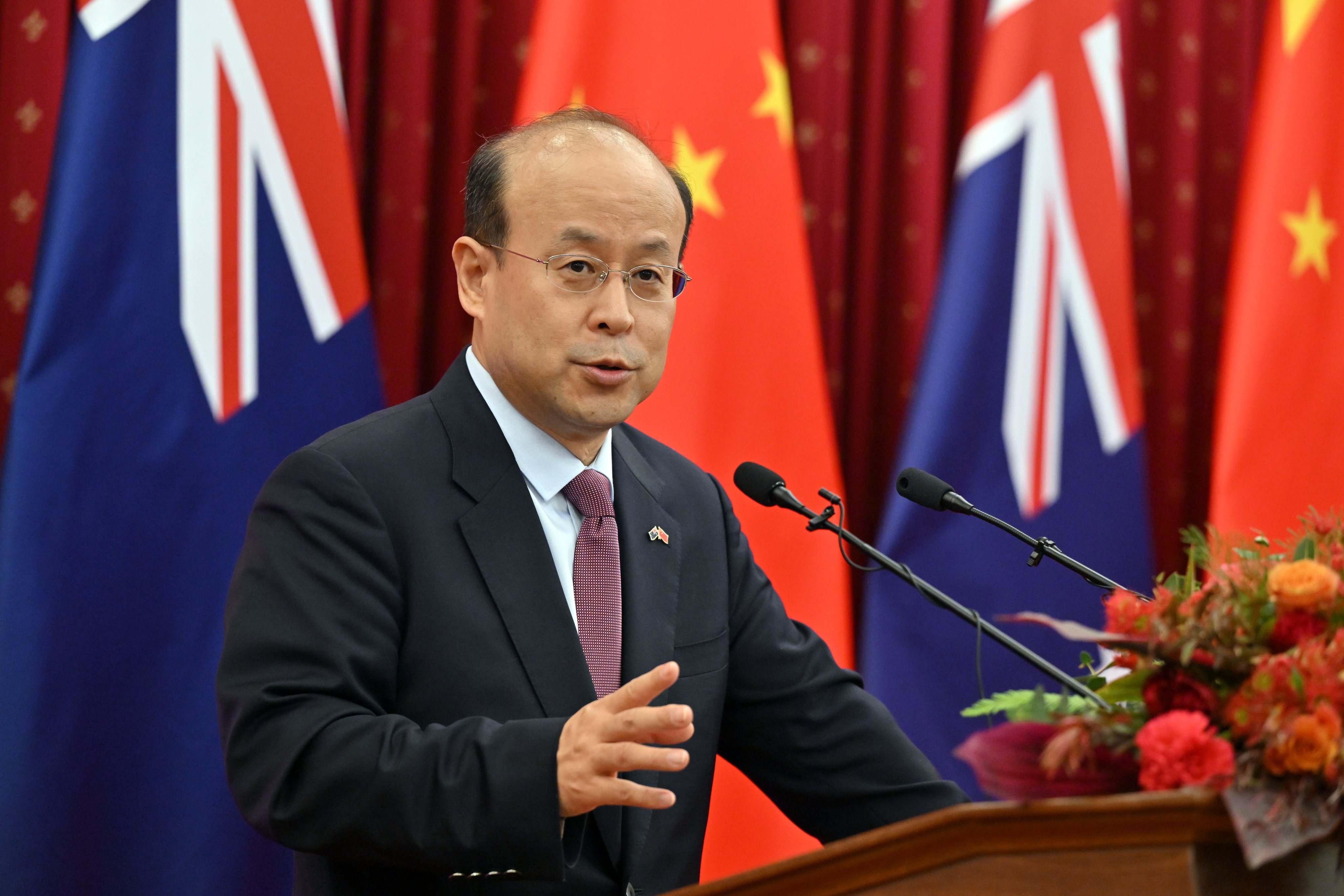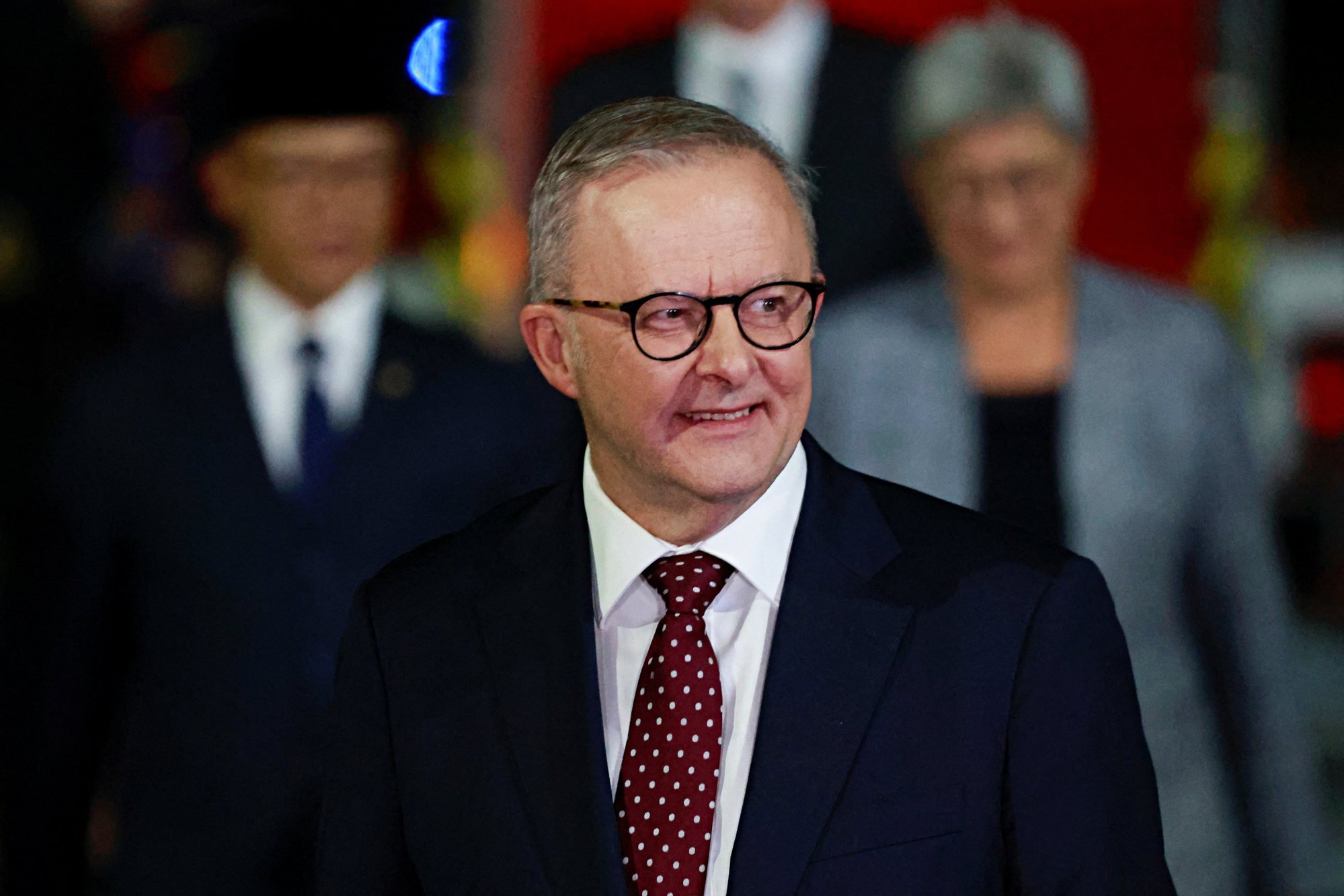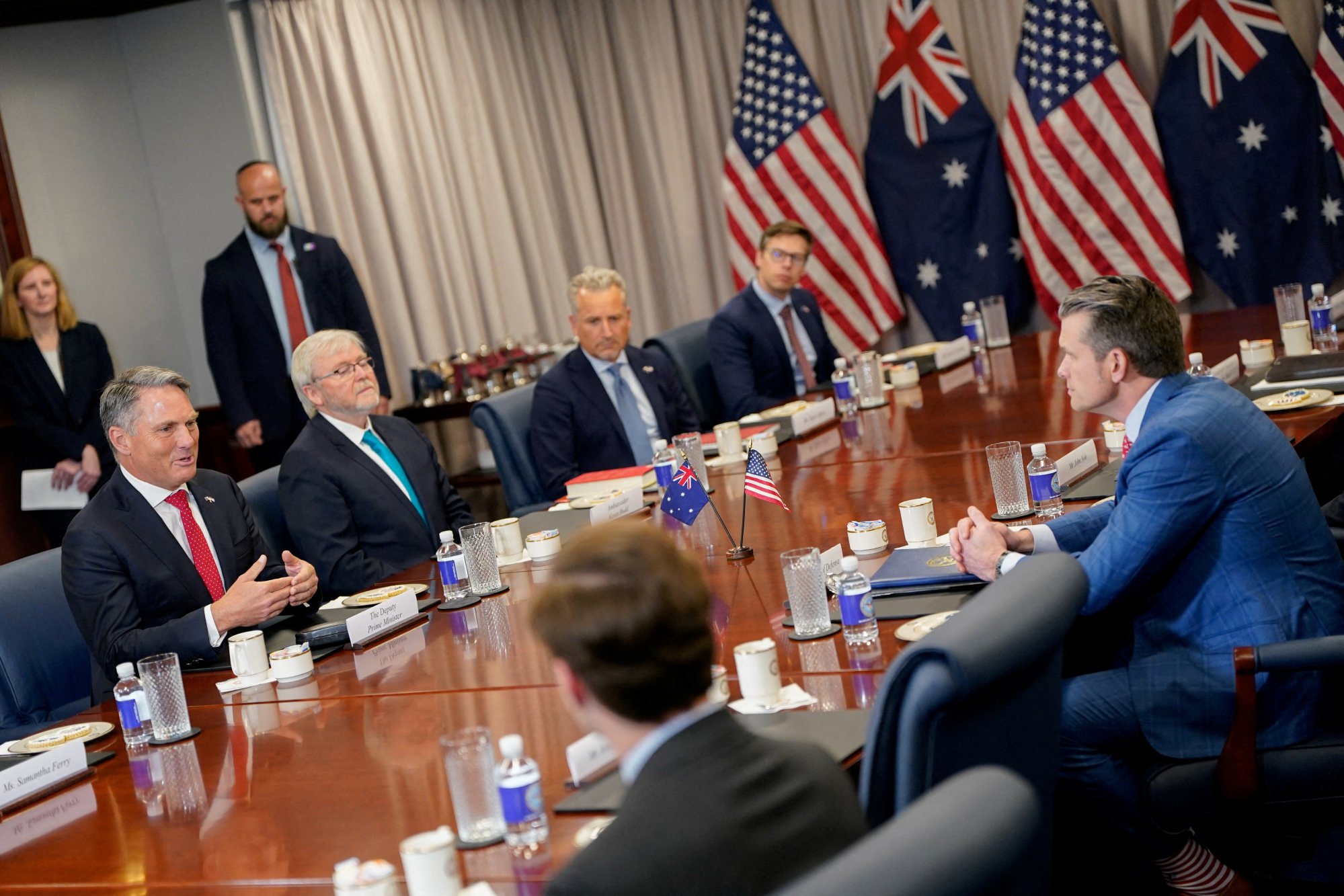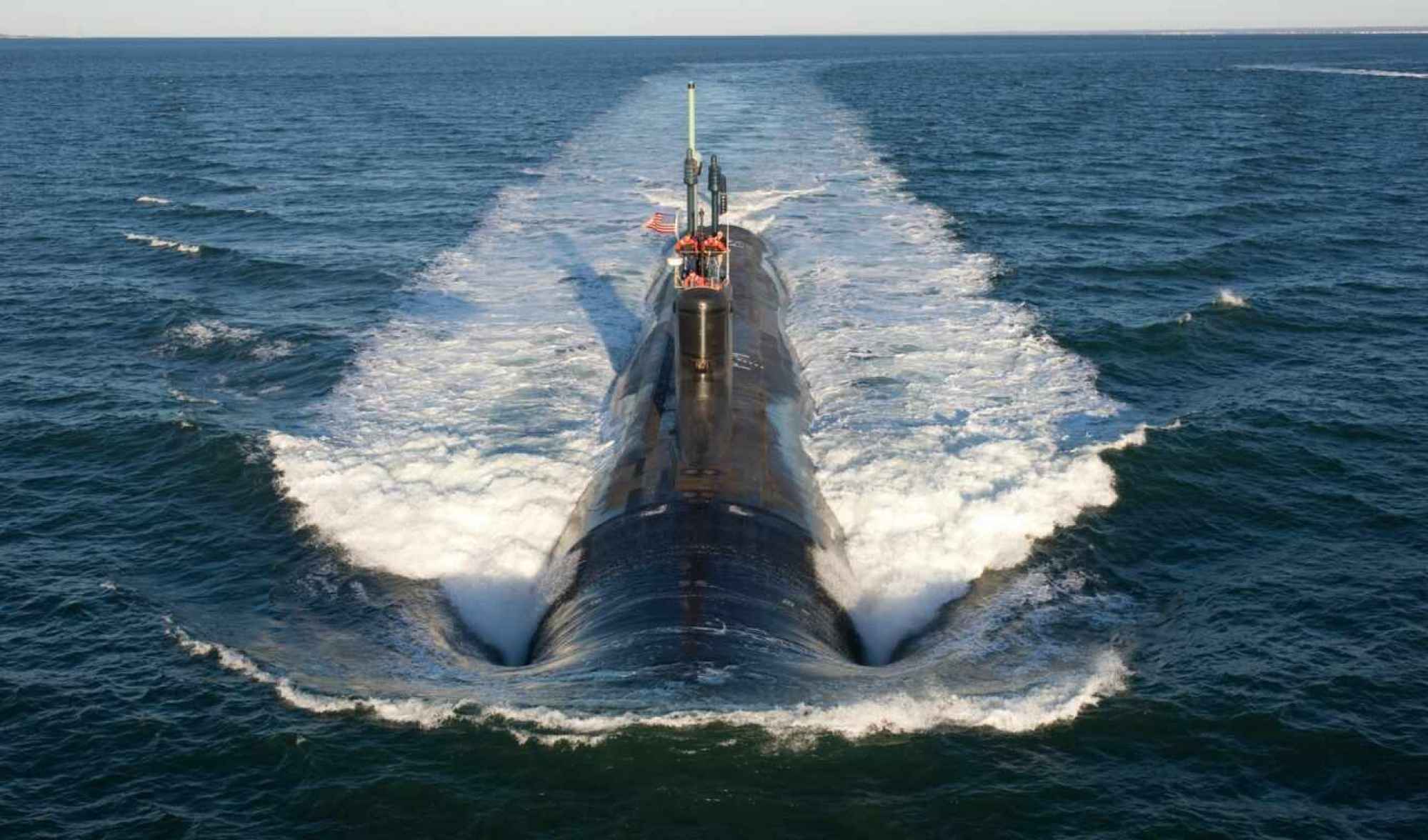Chinese ambassador’s ‘grandstanding’ advice for Australia raises eyebrows
Xiao Qian has criticised some countries that have ‘hyped up the so-called China threat narrative’ and sharply raised their defence spending

The Chinese ambassador to Canberra has urged Australia not to be “incited” by Nato’s support for demands by the US to raise defence spending sharply and instead should cooperate with Beijing to resolve regional disputes.
Analysts say the “unsolicited advice” is unlikely to sway Canberra and could backfire by reinforcing distrust of Beijing, ahead of Prime Minister Anthony Albanese’s visit to China and amid an ongoing debate in Australia over its defence spending.
In an opinion article published in The Australian newspaper on June 30, ambassador Xiao Qian said that some countries attending events such as the G7 summit and the recent Nato meeting had “hyped up the so-called China threat narrative” to increase defence spending and “even incited Australia to follow suit”.
“Dramatically increasing military spending places a heavy fiscal burden on the countries involved, undermining their efforts to boost economies and improve livelihoods, and further straining a global economy already struggling with weak recovery,” he said.
Australia currently spends just over 2 per cent of its GDP on defence, but is under growing pressure from the administration of US President Donald Trump to raise that to 3.5 per cent. Trump and Defence Secretary Pete Hegseth have publicly pressed allies to boost spending, with Washington linking the issue to potential trade relief and deeper cooperation within Aukus, which comprises Australia, the UK and the US.
Ian Hall, an international relations professor at Griffith University, said Canberra had resisted calls from Washington to boost defence spending significantly.
“I don’t think they will welcome unsolicited advice from the Chinese ambassador either,” Hall said. Canberra had struck a balance on spending given the scale of its Aukus obligations and budgetary constraints, he added.

Under the Aukus pact, Australia has committed to buy up to five US-made nuclear-powered submarines in the early 2030s and co-develop with the UK to build the SSN-Aukus class about a decade later. It is expected to spend an estimated A$368 billion (US$241 billion) on the two sets of submarines under the deal by 2055.
Washington’s calls on allies to increase defence spending “have been met more with irritation than anxiety”, Hall said, adding that most major US allies had already spent more in this area and did not see “an obvious logic” behind Washington’s demands.
The inconsistent American approach towards China did not help as well, said Hall, referring to Trump vacillating between emphasising Washington’s determination to compete against Beijing and working towards “a grand bargain” with its rival.
“It is hard for allies to calibrate their strategies in this confused context,” Hall said.
Richard Dunley, a senior lecturer in history and maritime strategy at UNSW Canberra, said many Australian policymakers and the public were “not sold” on the need for a spike in defence spending or a potential confrontation with China.
The Chinese ambassador’s intervention would also not be seen as helpful by some, according to Dunley. “I would imagine that the statement will be largely disregarded as grandstanding by an interested party,” Dunley said.
Washington’s demands for greater defence spending had caused “considerable anxiety” in Canberra, particularly over its leveraging of the Aukus deal “to force the hand of the Australian government”, he added.

Last month, the US said it would review the deal, saying that the pact must fit its “America First” agenda.
Australian politicians and the public resented the idea of being forced “or even blackmailed” into spending more on defence, Dunley said.
Likewise, it was not an issue that China could use as a wedge to drive Australia and the US apart, as such a move would be counter-productive, he added.
“Australians will resent the US as an ally attempting to interfere in what they see as domestic issues, but they will resent Beijing even more for seeking to take advantage of it. If the Chinese have any sense, then they will stay quiet and let the issue play out on its own,” Dunley said.
Philipp Ivanov, founder of geopolitical advisory Grasp or Geopolitical Risks and Strategy Practice, said Xiao’s message would be viewed with suspicion by Australian policymakers.
“After all, Australia’s defence strategy and spending are aimed solely at deterrence and resilience in the face of China’s growing power,” he added.
Xiao’s comments will further fuel Canberra’s anxiety as it balances between fending off growing pressure from Washington, facing a weak economy and aiming to reduce its trade dependency on Beijing, according to Ivanov.
“He is doing so at a time when Australians are wary of American pressure, distrustful of Trump and worried about the rising costs of living,” Ivanov added.

Xiao is also trying to lay the groundwork for China’s key messages for Canberra ahead of Albanese’s visit to Beijing, which is expected in the next few weeks, according to Ivanov.
In a recent survey conducted by the Lowy Institute think tank in Sydney, 72 per cent of respondents in Australia said they did not trust Trump to act responsibly in global affairs.
Nonetheless, Australian policymakers were more worried about China’s growing power in Asia than US demands and policy upheavals, Ivanov said. The general view was that the alliance between Australia and the US would endure the Trump presidency while the risks from China would grow, he added.
“It will be difficult for China to dramatically change this assessment,” Ivanov said.
During the visit by Albanese, China is likely to raise the issue of US pressure on Australia to increase its defence spending and barriers to Chinese foreign investment in Australia, particularly in mining and infrastructure, according to Ivanov.
In recent years, Australia has increased scrutiny of foreign investment inflows on national security grounds, particularly in critical infrastructure such as ports and telecommunications.
Last Thursday, Australia sued a Chinese-linked company for the first time over a breach of foreign investment laws linked to its stake in Perth-based rare earths miner Northern Minerals.
Chinese-owned Landbridge Group, which has a 99-year lease on the Port of Darwin after acquiring it in 2015, has sparked national security concerns due to the port’s location near Australian naval facilities.